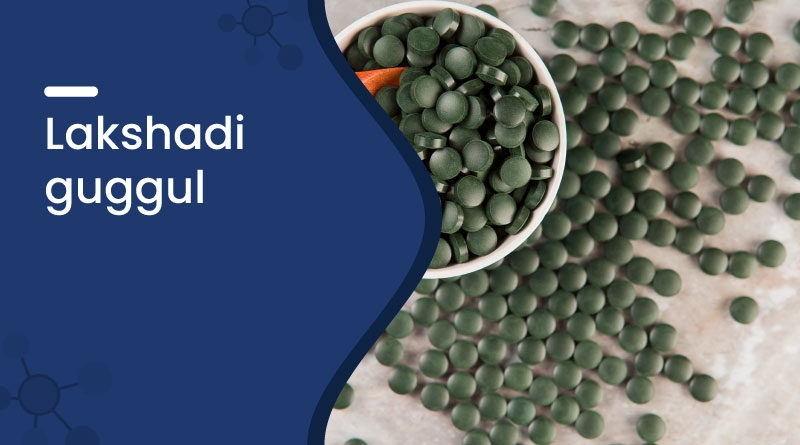Best Ayurvedic Medicine for Vata Dosha


Ayurveda, the ancient science of life, explains that the body is governed by three doshas—Vata, Pitta, and Kapha. Vata Dosha, made of air and space, controls all movement in the body, like breathing and heartbeat. When out of balance, it can cause various physical and mental issues.
This blog will explain what Vata Dosha is, how it works, and which Ayurvedic herbs and remedies help restore its balance.
What is Vata Dosha?
Vata dosha is the principle of movement and communication in the body. It is composed of the elements air and ether (space) and is considered the most powerful of all three doshas due to its role in regulating bodily functions. It governs:
- Breathing and circulation
- Muscle and nerve movements
- Mental activity and sensory perception
- Elimination of waste
People with a dominant Vata constitution are often energetic, creative, and quick-thinking. However, they may also be more prone to anxiety, dry skin, insomnia, and digestive issues when the dosha is aggravated.
How Vata Dosha Affects the Body?
When Vata is balanced in the body, it supports flexibility, liveliness, and mental clarity. It promotes:
- Efficient digestion and elimination
- Clear thoughts and focus
- Proper joint lubrication and smooth movement
- Healthy skin and hair texture
But when Vata is aggravated due to irregular eating habits, stress, lack of sleep, or excessive travel, it can lead to:
- Constipation and gas
- Anxiety and restlessness
- Dryness of skin and hair
- Irregular menstruation
- Joint pain and stiffness
Ayurvedic Herbs and Ingredients to Balance Vata
Ayurveda recommends warming, nourishing, and grounding herbs and formulations to restore balance in Vata. Some of the most effective include:
- Ashwagandha (Withania somnifera): This adaptogenic herb is renowned for calming the nervous system, reducing stress, and promoting sound sleep—key concerns in Vata imbalance.
- Bala (Sida cordifolia): Used traditionally to strengthen muscles and improve joint flexibility, Bala is ideal for those experiencing weakness or body stiffness.
- Shatavari (Asparagus racemosus): A natural tonic for the female reproductive system, Shatavari helps with dryness, fatigue, and emotional instability associated with Vata disorders.
- Licorice (Yashtimadhu): It soothes the mucous membranes and is beneficial for dry cough, hoarseness, and inflammation—common signs of Vata aggravation.
- Dashmool: A powerful blend of ten roots, Dashmool is effective for relieving joint pain, nervous disorders, and fatigue.
- Trikatu: This blend of ginger, black pepper, and long pepper stimulates digestion and helps prevent gas and bloating—digestive concerns linked to high Vata.
Best Ayurvedic Medicines for Vata Dosha Balance
Zeelab provides the best Ayurvedic medicines made from herbs without added chemicals for balancing Vata dosha. They contain all the natural herbs that help in curing problems that arise due to Vata dosha imbalance in the body.
| Product | Key Features |
|---|---|
| ZEELAB Ashwagandha Capsule | Boosts immunity and stamina; also increases energy levels |
| ZEELAB Shatavari Capsules | Regulates the menstrual cycle and improves reproductive health in women |
| NatureXprt Narivin Syrup | Treats menstrual problems and hormonal imbalance; works as an energy tonic for women |
| NatureXprt Hazma Shakti Digestive Churan | Helps cure constipation and acidity |
Lifestyle and Dietary Tips to Manage Vata
To manage Vata Dosha effectively, medicine alone is not enough. A holistic approach is key:
- Eat warm, oily, and nourishing foods
- Stick to regular meal and sleep schedules
- Practice calming yoga or meditation
- Avoid excessive travel, noise, and screen time
- Massage the body with warm sesame oil regularly
Conclusion
Vata Dosha controls all movement within the body and mind. When balanced, it brings energy, creativity, and mental alertness. But when disturbed, it can manifest as anxiety, dryness, and irregular body functions. Incorporating Ayurvedic herbs like Ashwagandha, Shatavari, and Dashmool, along with mindful lifestyle changes, can help restore harmony.
Listening to your body’s needs and addressing imbalances early is the true essence of Ayurveda.
Frequently Asked Questions (FAQs)
Q. What is Vata Dosha?
A. Vata dosha is one of the three energies in Ayurveda, made of air and space. It controls all movement in the body.
Q. What causes Vata Dosha to increase?
A. Irregular routines, cold weather, dry food, and stress can aggravate Vata in the body.
Q. What are the signs that Vata Dosha is out of balance?
A. Typical symptoms are dry skin, difficulty with digestion like constipation, sleep troubles, anxious thoughts, and a sense of restlessness or mental fog.
Q. Can taking Ayurvedic medicines daily cure Vata dosha imbalance?
A. Many medicines containing herbs like Ashwagandha and Shatavari are safe for regular use, but it’s best to consult an Ayurvedic practitioner before using anything.








 Added!
Added!